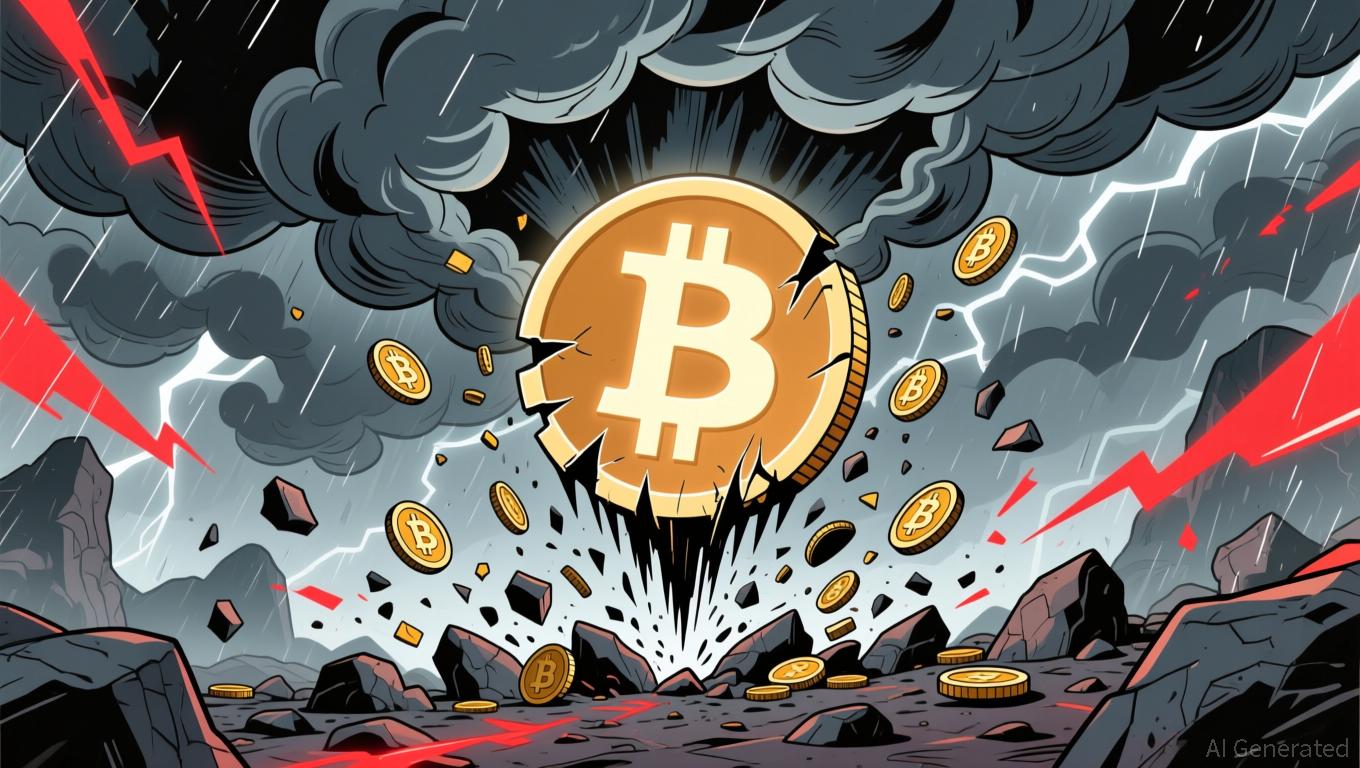Ethereum Enables the First SEC-Approved Public Equity Tokenization, Connecting Traditional Finance with DeFi
- SharpLink Gaming partners with Superstate to tokenize SEC-registered equity on Ethereum, becoming the first publicly traded company to natively issue blockchain-based shares. - The initiative aims to modernize capital markets by enabling global investor access through self-custodied wallets and DeFi integration while aligning with SEC's Project Crypto regulatory goals. - Tokenized shares will explore trading on AMMs, potentially enhancing liquidity and bridging TradFi with decentralized systems, though r

Source: [1] title1
SharpLink Gaming, Inc. (Nasdaq: SBET) has joined forces with Superstate, a fintech company, to issue its SEC-registered common shares as tokens directly on the
Through this partnership, SharpLink and Superstate will investigate the regulated trading of these tokenized shares on Automated Market Makers (AMMs) and other DeFi protocols, in line with the SEC’s Project Crypto initiative. The goal is to advance securities regulation for blockchain-based assets and markets. If successful, compliant trading of tokenized securities on AMMs could provide greater liquidity and utility for investors, while making capital movement between issuers and markets more efficient.
SharpLink’s Co-CEO Joseph Chalom highlighted that issuing equity as tokens on Ethereum signals a major evolution in global capital markets. “This is more than a technological step—it’s a vision for the future of finance,” he said. Joseph Lubin, SharpLink’s Chairman and Ethereum co-founder, emphasized that this move strengthens Ethereum’s position as a core platform for next-generation financial systems. Lubin also noted SharpLink’s significant ETH holdings, with over 838,000 ETH acquired and 3,815 ETH earned from staking since June 2025.
Robert Leshner, CEO of Superstate, called the collaboration a “landmark for an Ethereum-focused organization,” and pointed to the opportunity to grow the tokenized equity landscape. The tokenized shares will maintain SEC compliance while integrating with modular DeFi protocols, helping to connect traditional finance (TradFi) with decentralized networks. The initiative will be powered by Superstate’s Opening Bell platform, which enables companies to tokenize SEC-registered equity on the blockchain.
SharpLink’s broader ETH treasury plan, launched in June 2025, places it among the largest corporate holders of Ethereum. Its purchase of 10,000 ETH from the Ethereum Foundation in July 2025 further demonstrates its dedication to the Ethereum ecosystem. By utilizing Ethereum’s smart contracts, SharpLink intends to show how public companies can use blockchain to drive capital market innovation.
This project supports the SEC’s ongoing efforts to update regulations for digital assets. Project Crypto, a central part of the SEC’s modernization strategy, aims to encourage innovation while maintaining regulatory standards. Tokenized equities traded on AMMs could transform market dynamics by allowing for efficient and transparent securities trading, though the initiative still faces regulatory and market uncertainties.
SharpLink’s announcement includes projections about tokenizing shares and expanding staking, which are subject to risks and uncertainties. These include ETH price volatility, possible changes in securities regulations, and competition from other products. The company also mentioned that fluctuations in crypto asset values could present accounting challenges under U.S. GAAP.
The partnership between SharpLink and Superstate marks a major move toward merging blockchain with traditional finance, with potential impacts on liquidity, accessibility, and regulatory progress in capital markets.
Disclaimer: The content of this article solely reflects the author's opinion and does not represent the platform in any capacity. This article is not intended to serve as a reference for making investment decisions.
You may also like
Bitcoin News Update: Bitcoin's Recent Decline: Can Institutional Investors Help Steady the Market or Intensify the Slump?
- Bitcoin's price drop below $85,000 has intensified debates as long-term holders offload over 400,000 BTC, per economist Peter Schiff's warning about "weak hands" deepening selloffs. - High-profile exits like Owen Gunden's $1.3B BTC liquidation highlight profit-taking by OGs, while institutions via ETFs have absorbed 2.39M BTC since 2024, per Ark Invest. - Market fragility worsens as gamma exposure forces dealers to sell near $85,000 support, but institutional demand could stabilize prices if buying conti

YFI Value Drops 4.78% Over the Past Week as Market Fluctuations Continue
- YFI rose 0.1% in 24 hours but fell 4.78% in seven days, with 14.2% monthly and 50% annual declines. - Price movements reflect broader market instability, not project-specific updates or governance changes in Yearn.finance. - Analysts predict YFI remains sensitive to macroeconomic trends and global investor sentiment in the near term. - Token consolidation continues without fundamental shifts, urging investors to monitor on-chain metrics and protocol updates.

Bitcoin News Today: Bitcoin Drops to $90K—Is This a Prime Buying Chance or the Start of a Deeper Downturn?
- Bitcoin fell below $90,000, pushing 70% of active capital into losses and erasing $120B in market value. - Short-term holders face >30% drawdowns, with fear metrics hitting 2-year lows as $1.9B in leveraged positions liquidated. - Analysts cite historical rebounds after extreme fear, but MicroStrategy's leveraged holdings risk further selling if prices drop. - Institutional actions and Fed policy uncertainty remain key factors, though oversold indicators suggest potential 40% near-term rebound.

Coast Guard Strengthens Prohibition of Hate Symbols to Combat Antisemitism and Extremist Activity
- U.S. Coast Guard reversed a policy to reclassify hate symbols like swastikas and nooses from "potentially divisive" to prohibited, following backlash from lawmakers and advocacy groups over antisemitism risks. - The reversal came after a leaked draft proposal aligned with Trump-era Pentagon directives, which critics argued weakened harassment definitions and accountability for hate incidents. - Coast Guard reaffirmed strict prohibitions on divisive symbols, emphasizing severe punishment for violations, b
